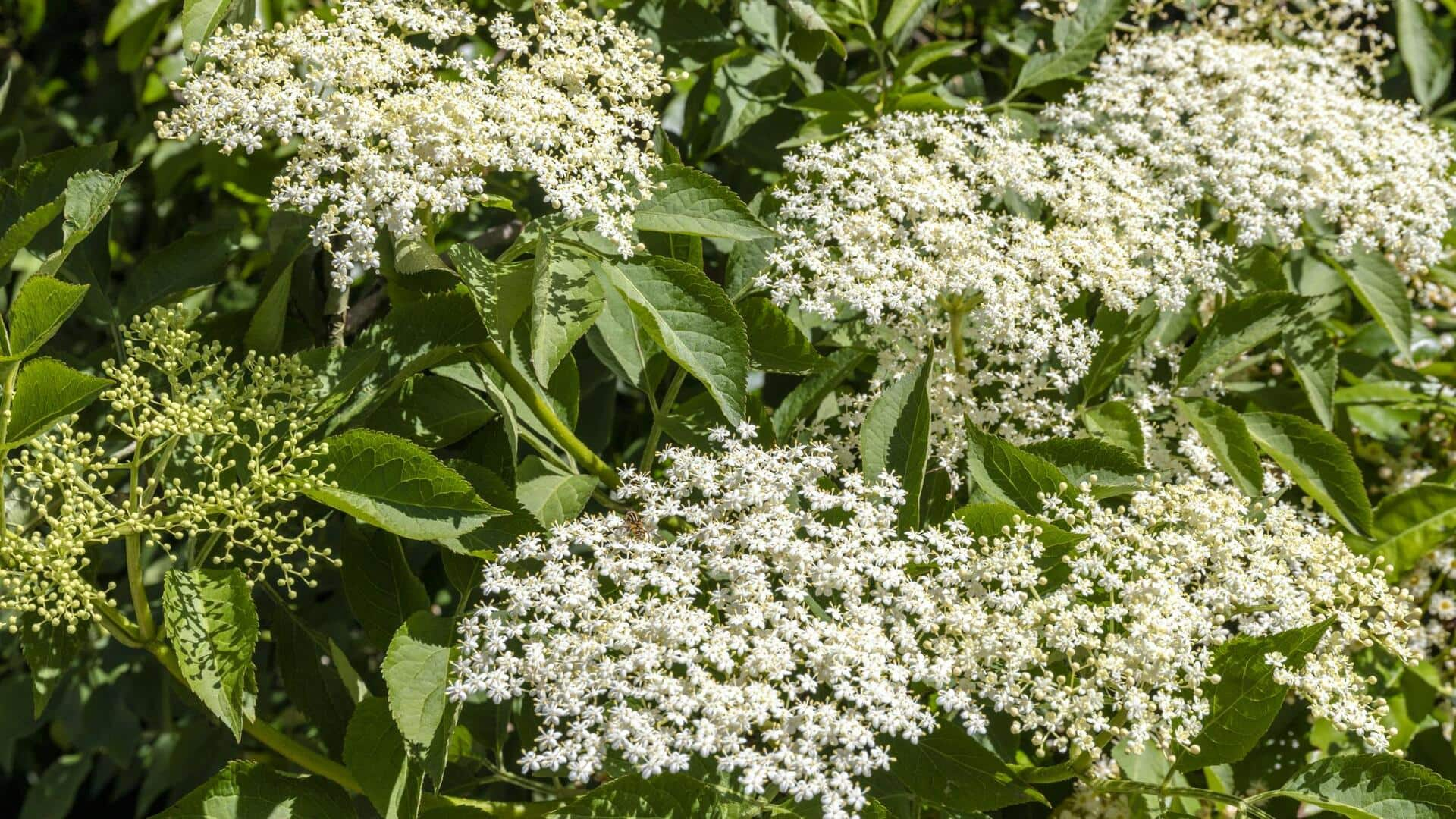
How to grow elderflower at home
What's the story
Elderflower is a versatile plant famous for its fragrant blossoms and possible health benefits. Growing elderflower at home can be a rewarding experience, providing both aesthetic appeal and practical uses. Here, we've put together some simple tips on how to grow elderflower successfully in your garden/backyard. With these steps, you can enjoy the beauty and utility of this plant without much hassle.
Tip 1
Choosing the right location
Selecting an appropriate location is also crucial for elderflower growth. The plant thrives well in well-drained soil with access to full sunlight for at least six hours a day. Also, make sure that the area has enough space, as elderflowers can grow up to six meters tall and wide. Avoid areas prone to waterlogging, as excessive moisture can harm the roots.
Tip 2
Planting elderflower correctly
Ideally, planting should be done in early spring or late autumn when temperature is moderate. Dig a hole twice the width of the root ball but not deeper than its height. Carefully place the plant, making sure it is upright, before filling the hole with soil and pressing it gently to get rid of air pockets.
Tip 3
Watering and fertilizing needs
Elderflowers require regular watering, especially in rainless times, to keep the soil from drying out. However, it's important to not overwater as it can lead to root rot, a common problem that affects plant health. Using a balanced fertilizer once at the start of spring encourages healthy growth. However, gardeners should avoid applying excess fertilizer, as it can negatively impact the plant's flowering ability.
Tip 4
Pruning for optimal growth
Pruning should be done every year in late winters or early springs before new growth starts. First, remove dead or damaged branches, then thin out crowded areas to improve air circulation and light penetration. Proper pruning encourages robust flowering and maintains the health of the plant.
Tip 5
Pest management strategies
While elderflowers are mostly resilient, they can occasionally be targeted by pests like aphids and caterpillars. Regular inspections are important to catch any infestation early. If you do have pests, insecticidal soap is recommended. But stay away from harsh chemicals. These can kill not just the elderflowers, but also beneficial insects and nearby plants, disrupting the entire health of the garden.